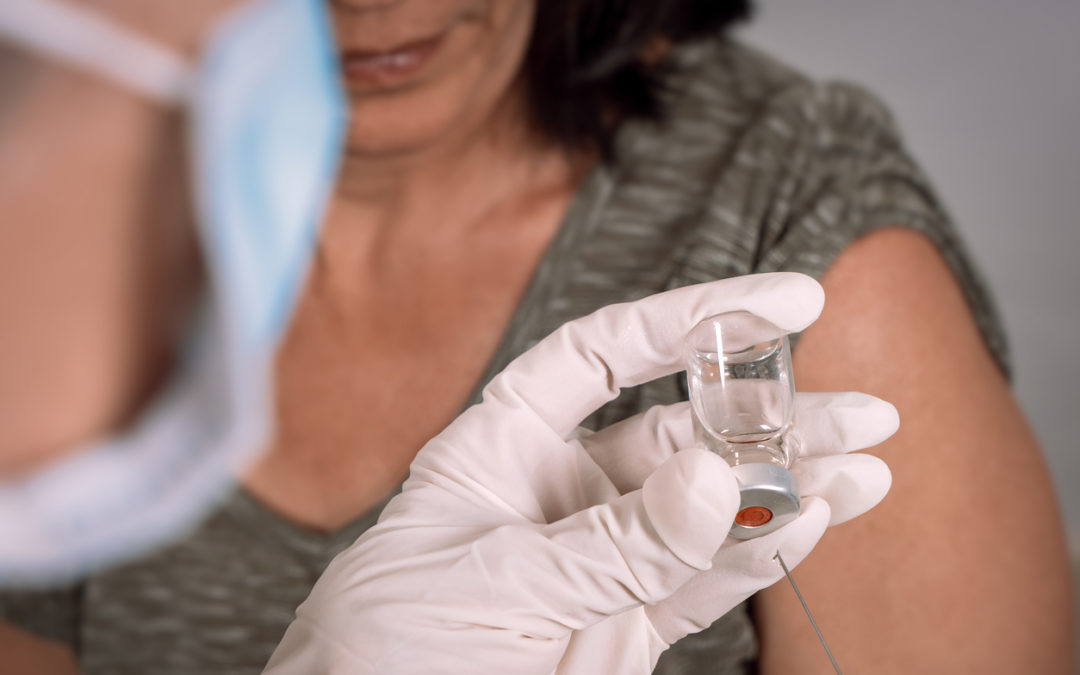In minority communities, there have been a number of challenges with people not wanting to receive a vaccine for COVID. While we’ve already talked with someone about what is going on in the Black community, we also wanted to check in with the Hispanic community as well.
Norma Cuellar, PhD, RN, FAAN, is President of the National Association of Hispanic Nurses as well as the editor-in-chief of the Journal of Transcultural Nursing. She took the time to answer our questions about this.
Why are Hispanic communities not being vaccinated as the same rate as white people?
There are many reasons. One is the social determinants of health, like a lack of access to health care providers or lack of culturally congruent health care. The second is trust. Underrepresented or underserved communities often look skeptically on the health care system because of historic inequities. This leads to fears of adverse health outcomes, including side effects of the vaccine.
Regarding the vaccine, what are the challenges facing the Hispanic community?
A major issue is confidentiality, particularly as it relates to immigration status. Also, language barriers can be a significant roadblock, so there needs to be more communication in Spanish to help reach people that are otherwise left behind.
Are people in the Hispanic community hesitant to receive the vaccine to prevent COVID-19? Why or why not?
There is a spectrum of receiving a vaccine: from yes to no, and then the middle. Vaccine hesitation is in the middle. It does not mean that the vaccine will not be taken but that the vaccine is not going to be taken for today. How can we move the “hesitation” into “action” or vaccination?
There are a variety of reasons that Latinos have vaccine hesitation. The lack of trust of the federal government plays a major role in their decision. They fear having information about them will put a red flag and immigration may be notified. They are concerned about increased deportations.
They get their information from their peers and doubt the messages that have been sent out about COVID-19 that have not been consistent. They do not know who to trust, and do not have anyone they trust to go to. They need a PSA that is culturally congruent to the Latino community.
In addition, for the past four years, they have been intimidated through propaganda. They fear the stigma of being Latino, referred to as “rapists” and “drug dealers” in the last four years. They stay away from dealing with authorities, avoiding confrontations, and conflict. They are concerned about being visible, aware of the increase of hate crimes in our country.
Like the Tuskegee study, Latinos know about the abuse of minorities who have been treated unethically in research studies and believe it could be repeated with the new vaccination that has not been fully tested. With few Latinos participating in NIH research funding, they are unaware of the benefits of learning more about improving health outcomes through legitimate research engagement. They want to see Latino role models who take the injection before they do.
If they are hesitant about receiving it, what information can nurses give to them to help alleviate their fears?
We need to forge new community partnerships and work with people that are trusted by their peers. We need to communicate directly with people who are hesitant and educate them on this. For the Latino community, we also need to relay information in Spanish.
How can nurses who work in Hispanic communities working to build trust in the communities that they serve? How are you building that trust?
Though not specifically vaccine-related, the All of Us Research Program is working actively with partner organizations to build trust in communities and help educate people about the importance of research. The National Association of Hispanic Nurses is just one of those proud partners. We go wherever we can reach the community, as many times as it takes, and partner with other Latino organizations to build trust with the community. Compassion is essential, and we believe that one-on-one engagement will help close the gap on these inequities.
How can more research like the NIH All of Us Research Program help to prevent health disparities like this in the future?
The All of Us Research program allows Latinos not to be subjects in a research study but to be participants in the program. Through community-based partnerships, we are educating our Latino communities about research and the program. We want them to see that they can trust us and see that the community partners are in this with them. Through All of Us, we encourage all minorities to participate in our program because it impacts generations to come. Increasing self-awareness by Latino leaders in our organization will show that we lead by example and that we have faith in these programs. We must develop trust and protect Latinos from everything they fear (deportation, notification of immigration status, lack of safety in research studies). Consistent messaging of health prevention measures in Spanish must be available.
- What an MSN Can Do for You - October 18, 2023
- The National League for Nursing: Connecting the Academic and Clinical Worlds for 130 Years - August 16, 2023
- Treating Burnout, Trauma, and Grief with Dance - July 14, 2023



